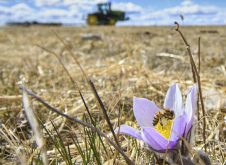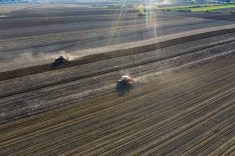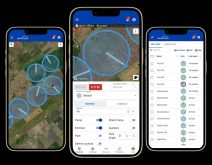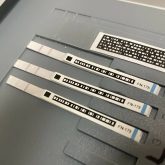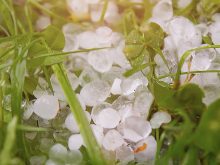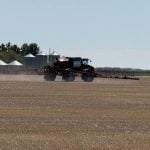While the Farmers of North America’s forays into fertilizer production (Project N) and distribution (Genesis) have been getting a lot of attention, the FNA have also launched another program that might be useful on your farm.
The FNA’s Market Power Assurance program protects farmers when the buyer does not pay.
“It’s interesting how many farmers you talk to,” says FNA CEO Bob Freisen, “who have had an incident where they didn’t get paid.”
The program, Freisen says, is flexible and unique. “As far as we know, there’s no other product like this available anywhere.”
Read Also
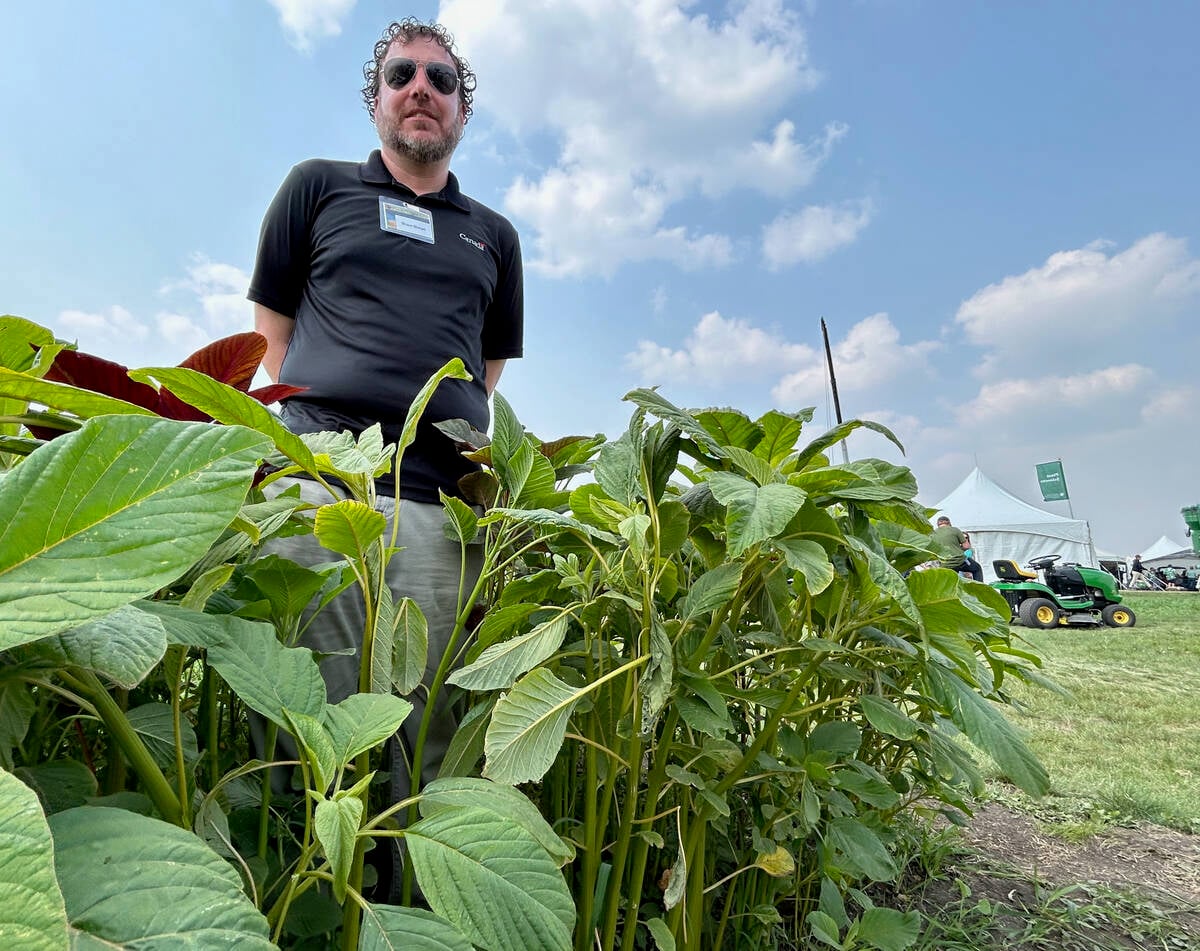
Glufosinate-resistant waterhemp appears in U.S. Midwest
News of glufosinate-resistant kochia in the U.S. is concerning as farmers are losing options to control waterhemp, also of the pigweed family.
It’s unique, he says, because it isn’t “whole” insurance. “Farmers can buy insurance buyer-specific and invoice-specific.”
For example, you might hesitate before you sell your chickpeas to a buyer you’ve never dealt with before, especially if that buyer is not licensed by the Canadian Grain Commission and you have no other access to protection. Now, you could use the FNA’s program to buy payment insurance for just one or two loads of chickpeas, until you build confidence that your buyer will indeed pay their bills. Meanwhile, if you’re confident that the feedlot operator down the road is definitely going to pay, you don’t need to buy any insurance for that transaction.
“They can pick and choose for which buyer they want to buy the insurance, and for how many deliveries or how many loads they want to buy the insurance,” Friesen says.
This new insurance will cover “any product that farmers produce.” It also covers processed food products, pedigreed seed and seed cleaning.
What does it cost? First, you’ll pay a one-time credit check fee of $50 for each buyer. The insurer will determine how much due diligence is needed in each case. For domestic buyers, they plan to get back to you with an answer within 48 hours.
It’s possible that, after the credit check, your application for insurance may be turned down. In that case, a $50 fee would be a cheap warning. If you do business with that buyer anyway, “you better do it cash on delivery,” Friesen says.
As for the actual insurance, Friesen estimates the rough cost of insuring sales of $10,000 to be $65. (That is, a total of $115, including the credit check fee.) For this price, you’re insured for 90 per cent of the value of your sale. If your buyer doesn’t pay, the underlying insurer, Euler Hermes, will pay you your 90 per cent, then try to recover the payment from your buyer.
This insurance product is small-farmer friendly — it has a very low minimum. “You can insure for anything $2,500 and up.”
“It’s very, very affordable. And it’s really flexible,” Freisen says.
This program may give you more room to negotiate with potential buyers. “Typically buyers have cash flow challenges just like everyone else,” Freisen says. Using insurance, farmers could offer buyers 90 days to pay.
Or, with their accounts payable insured, farmers may be able to leverage credit from banks while they wait for payment.
Find more information about this program at marketpowerassurance.ca.
FNA’s Price Book app
In April, 2014 FNA released an app: Ag Price Book. FNA member or not, you can download this app for free from iTunes or the Google app store.
The app is easy to use and could help make farm input prices a lot more competitive.
Through Ag Price book, farmers can post the prices they’re paying for inputs like diesel fuel, herbicides or fertilizer. The app will sift through other submitted prices and display the results in three different areas around your home: zero to 50 km, 50 to 100 km, and 100 to 150 km. You can compare relative prices, but the app doesn’t allow you to see which company is offering which prices, or which farmer posted them.
In theory, this app is wonderful. In real life, it’s not working that well right now. A quick search for anhydrous ammonia prices around my current location gives no results — the app replies that there are “no posted prices.”
“The problem with that one is we haven’t had nearly enough participation in it. We would really like to increase the participation,” says Bob Friesen, FNA CEO.
“We’re not on a very huge budget and so we didn’t do a lot of marketing,” Freisen says. “It really needs a concerted marketing effort to get the kind of traction that we need.”



